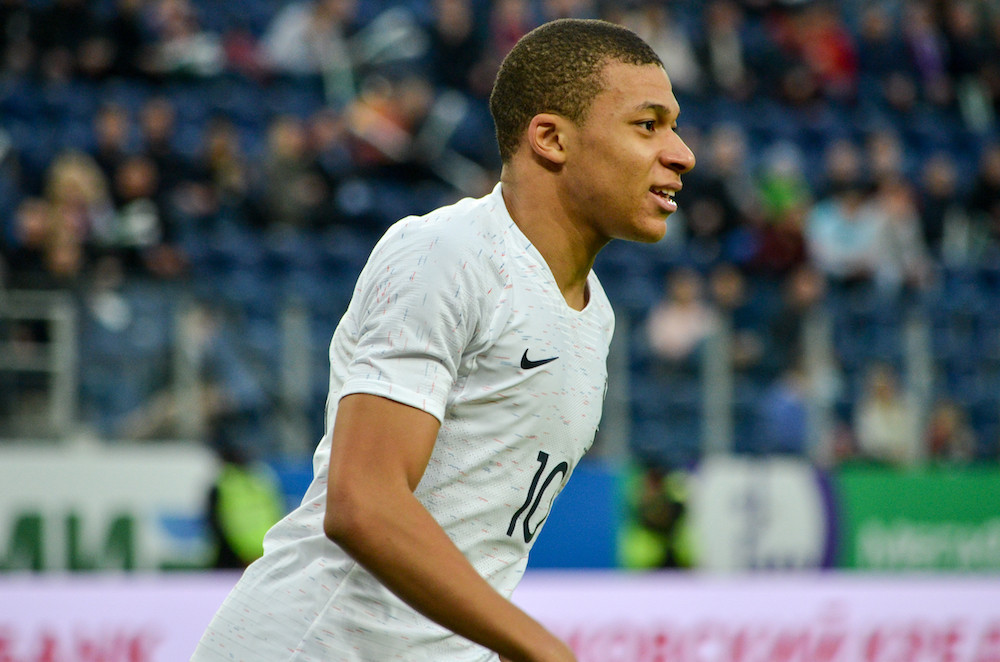“Investment funds are only in it for the business. They have no business in football!” Last April, Christophe Dugarry, world champion in 1998 and European champion two years later with France, made a small media statement in the pages of the newspaper L'Équipe. And this has caused quite a stir, of course. The former striker, who has become one of the most influential voices in the French sports media (even if he has taken a back seat in recent months), was not very happy to see the American investment fund King Street withdraw from Girondins de Bordeaux--the club where he spent a good part of his training--a few days earlier. And to place the latter in a most delicate situation.
His criticism is not a solitary voice. One might even say that it reflects a tendency shared by a part of the football world, one that sometimes has difficulty accepting certain modernisations of this sport that was born over 150 years ago. Especially when it comes to financing or simply business. The "it was better before” brigade have difficulty in seeing the deployment of investment funds observed in recent months within football clubs located throughout Europe in a positive light.
From local businessmen to billionaires
"Historically, there have always been people willing to invest in football clubs. But they were not investment funds. Simply because these clubs were not seen as economic investments," explains Dan Jones, leading partner of the Sports Business Group at Deloitte. He is referring to a time when clubs were owned by 'local' businessmen, who were often fans of the team in question or simply found interesting connections for their business in their positions.

Dan Jones, leading partner of the Sports Business Group at Deloitte. (Photo: Deloitte)
"It was a time when you spent all the money you earned in a season. But the owner knew that after 5, 10 or 15 years at the head of the club, he would always find someone to take over. And that he would get his money back on this (re)sale", continues the Deloitte specialist. "A phenomenon that has not diminished over the last 20 years, with the increase in football revenues. And in particular the phenomenon of TV rights. Before the emergence of covid, there had never been as much money in football as there is today."
The context around the clubs has changed
In a market that has continued to grow, clubs have sought resources to constantly increase their capital. This has led to a shift from local owners to millionaires, and then to billionaires who are not necessarily individuals.
And investment funds have started to get excited about football. "By nature, they are not interested in operations where you lose money every year. This was historically the case with football. Except that, in recent years, the arrival of these funds has been favoured by several elements. First of all, there has never been so much money at stake, as I have already mentioned.
At the same time, the management of the clubs has also progressed a lot, towards greater professionalism. And then there is another important factor that has come into play: the arrival of 'financial fair play' imposed by the European federation (UEFA, editor's note). The latter has introduced lines of control at the financial level that had never been seen before in this sport."
Mbappé, the ultimate example of "trading"
All of this has created an ideal breeding ground for these investment funds.
What's more, they are also interested in a new way of making their investments in football profitable: the policy of "player trading". This consists of buying (or training) young players with high potential, letting them develop and then explode, before selling them with a nice capital gain. And it can be very profitable. The ultimate example is certainly the French international Kylian Mbappé, who arrived in the Principality of Monaco at the age of 14 and was sold in 2017 by the Monegasque club to PSG for a sum estimated at €180 million.

French international Kylian Mbappé had brought in a lot of money for AS Monaco. (Photo: Shutterstock)
An amount that may seem small when you see the billions that some investment funds are making. But it is still a nice gain considering the investment usually made to become a majority shareholder in a professional club. For example, a few weeks ago, the generally well-informed newspaper L'Équipe explained that the owners of Saint-Étienne were ready to sell the club for €20 million. This is necessarily a low price for a French Ligue 1 team. Usually, the price is higher. Two years ago, OGC Nice fell into the hands of Jim Ratcliffe, boss of the company Ineos and the biggest fortune in the United Kingdom, for a price estimated at over €100 million. This made it the largest sum invested for a football club in France.
When you leave the Hexagon, the figures can get a little more crazy. In 2017, for example, a sum of €740 million was mentioned for the purchase of AC Milan (which until then belonged to Silvio Berlusconi) by Chinese investors. And in some other cases, it can easily exceed one billion.
Different strategies exist
"On the European market, you can find clubs at all price points," says Dan Jones. "If you want to take control of a club that is stamped 'Super League', the top of the top, you are indeed looking at a billion dollar purchase. But many are interested in clubs at a lower level."
The analyst points out three different strategies for a fund to invest in a football club. "The level at which you want to invest influences the price you have to pay to acquire the club. Just as it also brings different risks and rewards in terms of future expectations. Buying a Super League club is very expensive, as I explained, but it ensures that you stay at a European footballing powerhouse, and therefore get the income that this implies. You can also decide to invest in a lower level club in one of the major European leagues. This time, the idea is to make it grow and take it to a place that will give it a ticket for European competitions and the important revenues that come with it. Let's take an example: if you buy a team that is 12th in England and take it to the top 4, you will have the return you dream of! Finally, we have also seen a lot of funds taking over the reins of clubs evolving in D2, especially in France. It may come as a surprise, but their goal is simply to reach the national elite. Where they will then be entitled to much higher TV rights.
Set to last
"So there are very different situations depending on the level at which you want to invest. But the conclusion is always the same: in order to succeed financially, you have to succeed in sports! This is the best way to increase the value of the club you have acquired. We often oppose sporting success to financial success, whereas in reality the two go hand in hand.
This way of seeing things is not really in line with the one stated a few weeks ago by Christophe Dugarry...
The latter, like many others, may well have to come to terms with the fact that investment funds are certainly in the game for a while. Buying low to sell high is one of the philosophies of these funds. And given the current general economic situation in football, the opportunities to take over clubs at a good price are likely to multiply. With the hope of seeing a nice upturn materialise later on.
